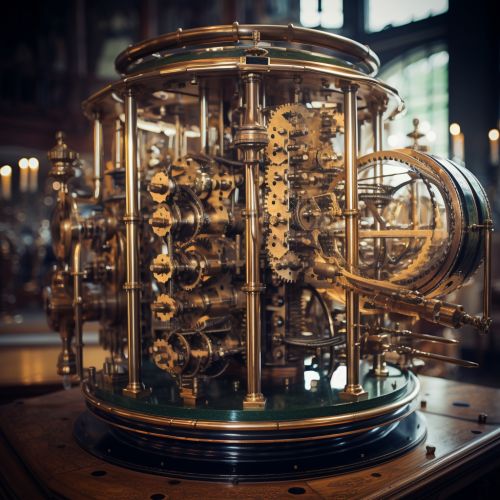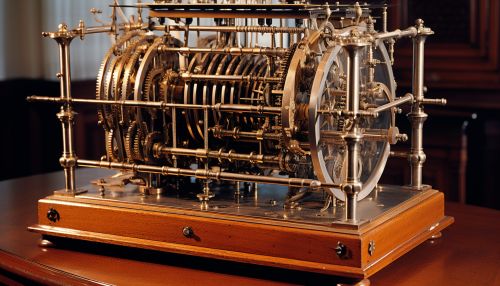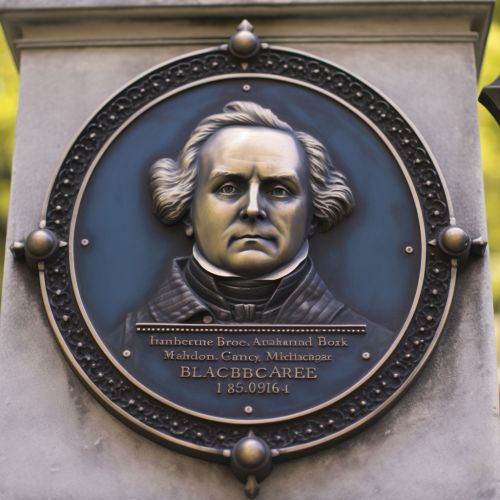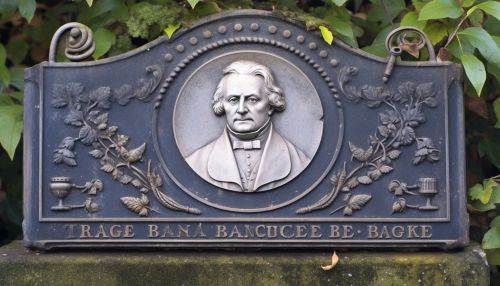Charles Babbage
Early Life
Charles Babbage was born on December 26, 1791, in London, England. His father, Benjamin Babbage, was a banking partner of the Praeds who owned the Bitton Estate in Teignmouth. His mother, Betsy Plumleigh Babbage, was also from a wealthy family. Babbage attended the Holmwood House School in Baker Street, Enfield, where he excelled in mathematics.


Education
In 1810, Babbage entered Trinity College at the University of Cambridge. He found the mathematical instruction there to be deficient and co-founded the Analytical Society with his friends John Herschel and George Peacock. Babbage was also a member of other societies such as The Ghost Club, concerned with investigating supernatural phenomena, and the Extractors Club, dedicated to liberating its members from the madhouse, should any be committed to one. In 1812, Babbage transferred to Peterhouse, Cambridge, where he was the top mathematician but did not graduate with honours. He instead received a degree without examination in 1814. He had defended a thesis that was considered blasphemous in the preliminary public disputation, but it is not known whether this fact is related to his not sitting the examination.
Career and Achievements
Babbage is best known for conceiving the idea of programmable computers. He first proposed the idea of a difference engine in 1822 to the Royal Astronomical Society, which would be able to compute values of polynomial functions. This idea was revolutionary at the time and was funded by the British government. However, due to a variety of reasons including funding issues and Babbage's interest in developing a more complex machine, the Difference Engine No. 1 was never completed.
In 1834, Babbage began developing his most ambitious invention, the Analytical Engine. This machine was designed to be programmable and perform any type of mathematical operation. It was also intended to use punched cards, an idea he took from the Jacquard loom. Although the Analytical Engine was never completed, its design has been recognized as a precursor to the modern computer. Ada Lovelace, an associate of Babbage, is credited with writing the world's first computer program in association with the Analytical Engine.
Babbage also made significant contributions in other areas. He was instrumental in establishing the modern postal system in England, including the introduction of the uniform penny post. Babbage wrote a seminal work in the field of operations research, "On the Economy of Machinery and Manufactures". He also made contributions to the field of cryptography. In his later years, Babbage wrote an autobiography, "Passages from the Life of a Philosopher".


Personal Life and Legacy
Babbage married Georgiana Whitmore at St. Michael's Church in Teignmouth, Devon in 1814. They had eight children, but only three survived to adulthood. Babbage's wife died in 1827. The death of his father, wife, and two of his children in the same year was a devastating blow to Babbage, and he never remarried.
Babbage died at his home in London on October 18, 1871. His brain is preserved at the Hunterian Museum in the Royal College of Surgeons in London.
Babbage's contributions to computer science were recognized and appreciated much after his death. In 1991, a functioning difference engine was constructed from Babbage's original plans. Built to tolerances achievable in the 19th century, the success of the finished engine indicated that Babbage's machine would have worked. Today, Babbage is regarded as the 'father of the computer'. His difference engine and the design of the analytical engine are seen as the first steps towards the development of the modern computer.


